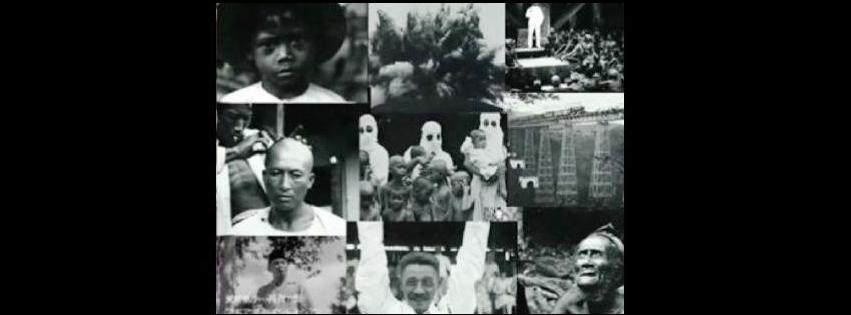KITLV/Royal Netherlands Institute of Southeast Asian and Caribbean Studies

- This event has passed.
Seminar ‘Celluloid colony: Salvaging history in colonial films from the Dutch East Indies (1912-1930)’
20/11/2014 @ 15:30 - 17:00

By Sandeep Ray. In 1912, a novel approach was devised to showcase Dutch colonial efforts to uplift its image in the East Indies: informational films. Dozens of short films were subsequently produced all over the Archipelago, primarily for screenings in the Netherlands where young men were actively recruited for work in the colony.
The films, positive and championing of the Dutch presence, also inadvertently chronicled the ills of rapacious colonial expansion – child labor, massive scale deforestation, cattle-like treatment of coolies and proselytizing en masse. What may appear to be inhumane today was, however, looked upon as growth and development in the early twentieth century. Much of that footage, spanning a wide range of styles – travelogue, documentary, educational and proto-ethnography – has been preserved, and is the focus of this presentation.
Based on extended archival research in the digital holdings at the EYE Film Institute and at Beeld en Geluid,subsequently cross-referenced with newspapers, periodicals and academic monographs, this presentation will locate, consider and discuss these films as primary sources that often unwittingly contribute towards an expanded narrative of the colonial encounter. Advocating for a ‘pictorial turn’ in the study of colonial history, I will present from the archive, rare and telling film clips that show us hitherto under-observed aspects of Dutch colonialism. The presentation situates documentary filming in the East Indies within the global context of that era, and considers the intellectual, religious and ethical ideas that may have influenced some of those pioneering filmmakers.
Sandeep Ray is a Ph.D. Candidate at the Department of History of the National University of Singapore.
Details
- Date:
- 20/11/2014
- Time:
-
15:30 - 17:00
Organizer
- KITLV en Stichting de Sportwereld
- sitinjak@kitlv.nl
Venue
- KITLV, Room 138
-
Reuvensplaats 2
Leiden, + Google Map



